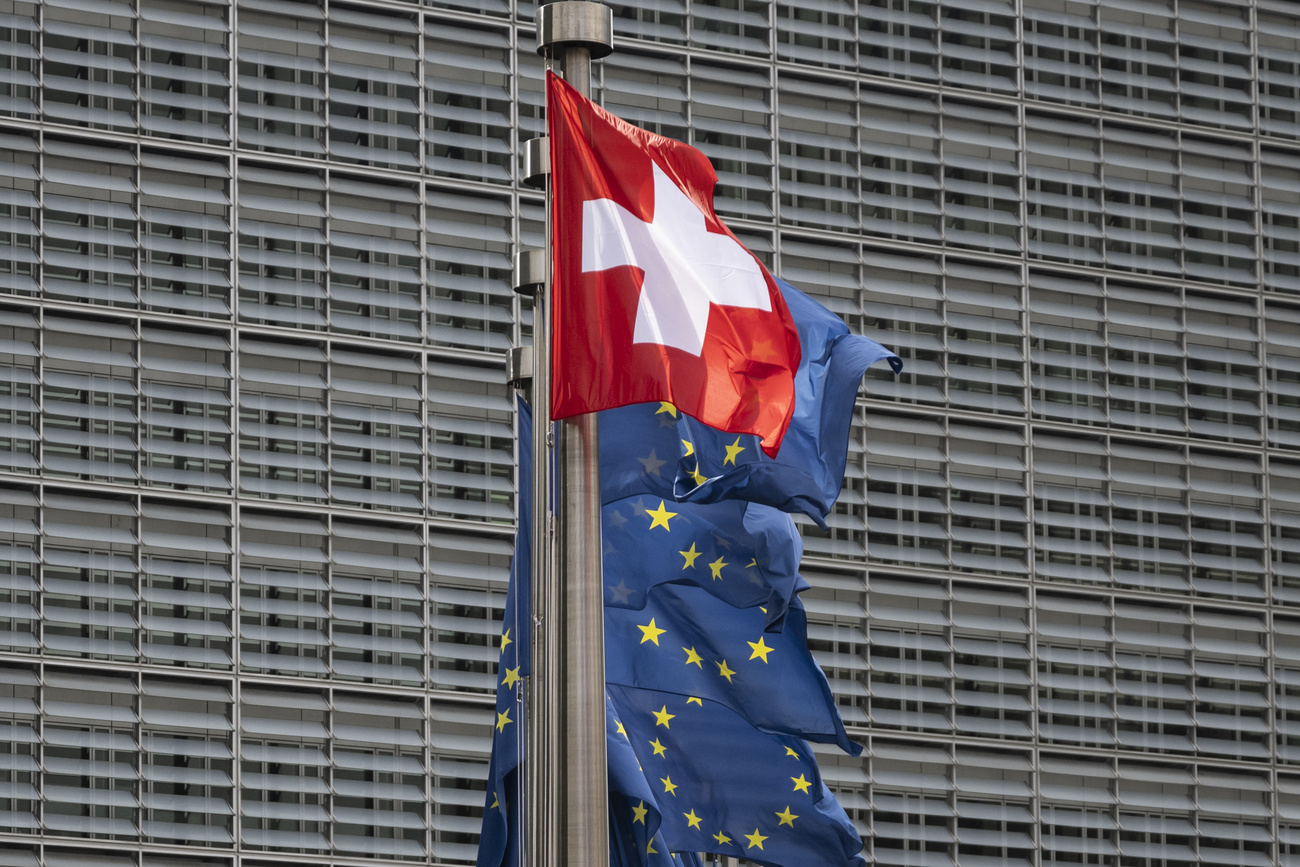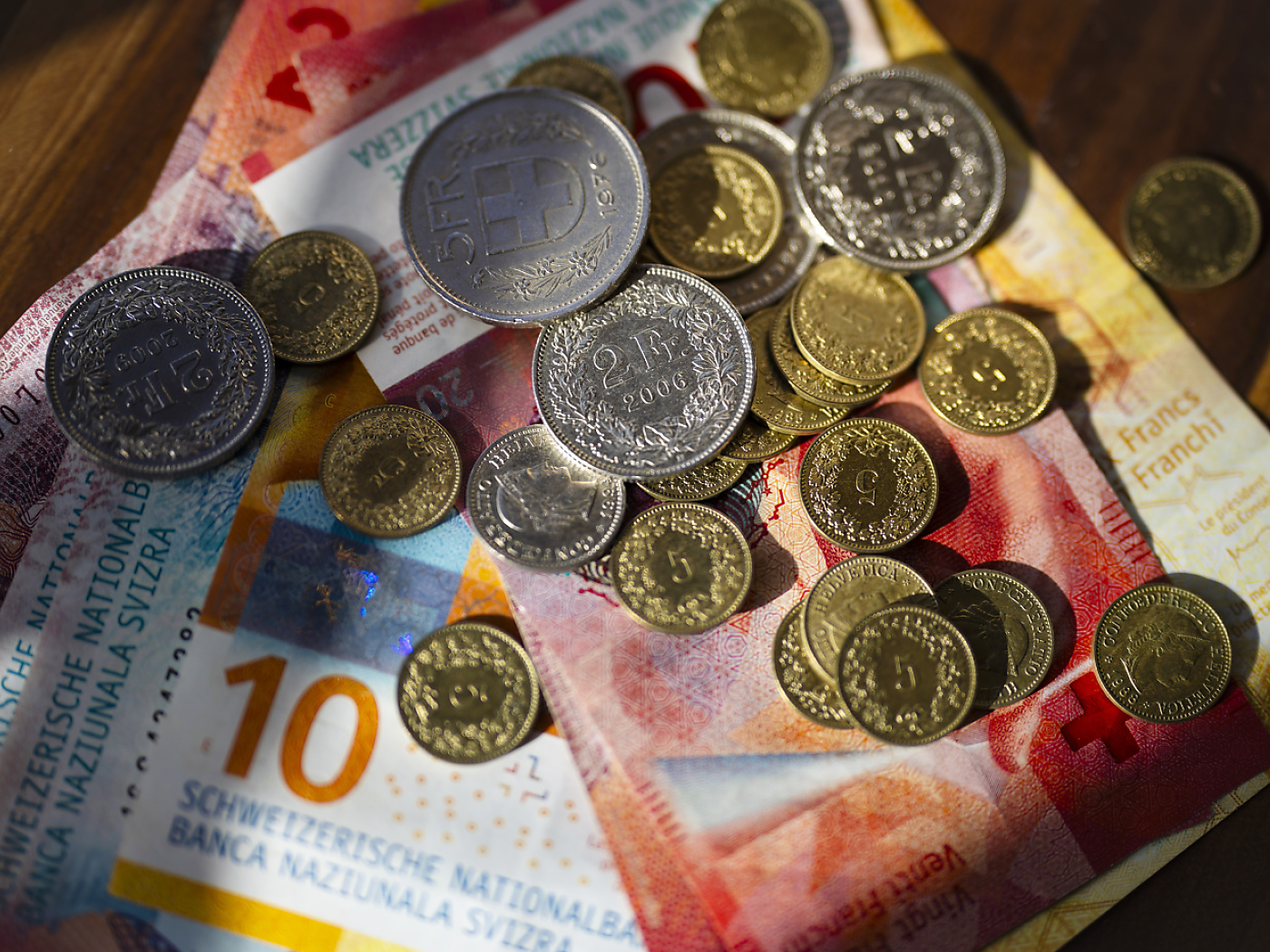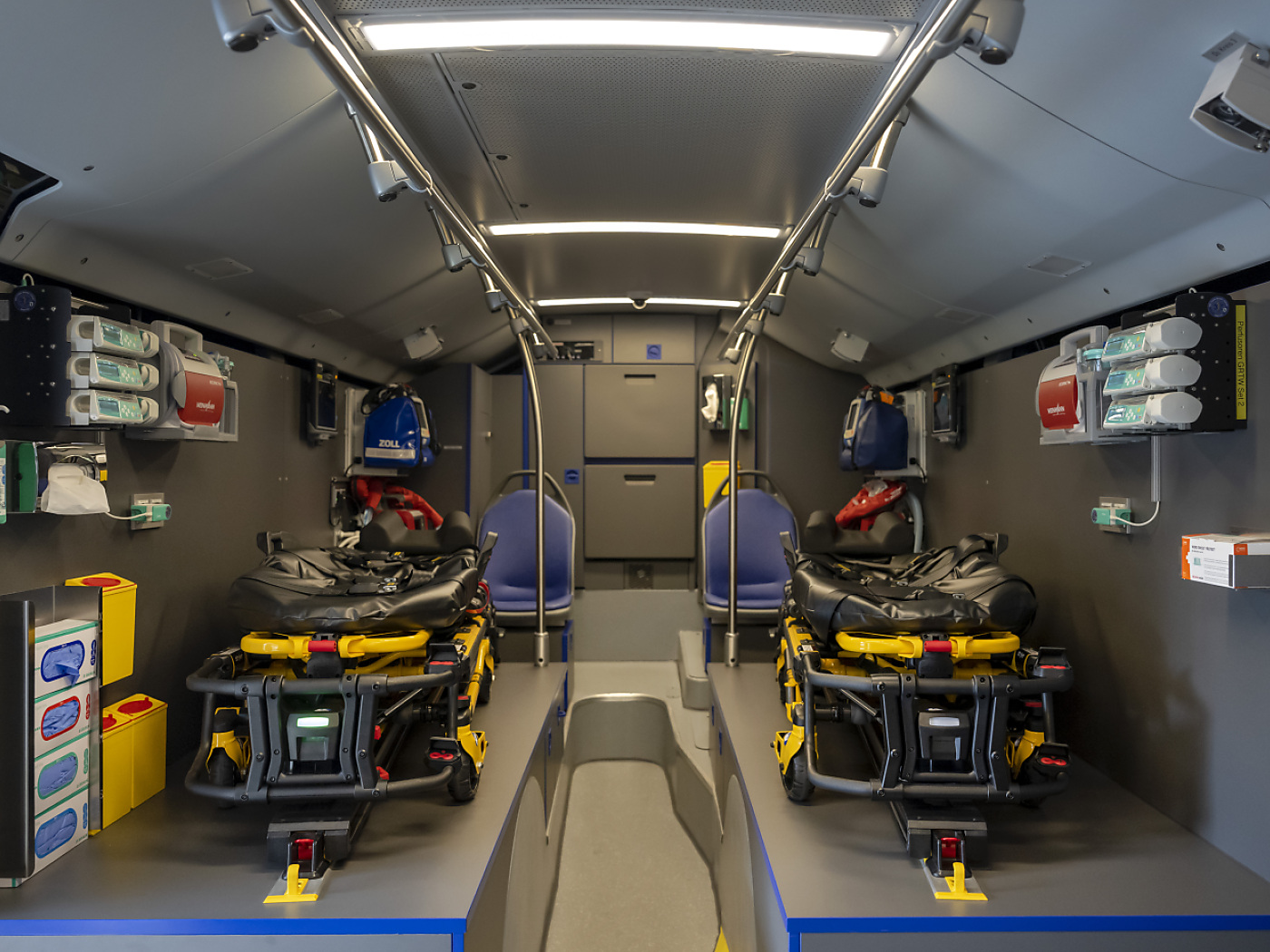Berset: ‘Democracy is regressing in several countries’

Democracy is backsliding in a number of nations and needs to be strengthened, says former Swiss government minister Alain Berset, secretary general of the Council of Europe since September.
+Get the most important news from Switzerland in your inbox
The organisation founded in 1949, of which Switzerland has been a member since 1963, promotes government by the people, human rights and the rule of law.
“Democracy is regressing in several countries, not always to the same extent or from the same starting point or end point,” Berset said in an interview published on Sunday by Le Matin Dimanche. “But the movement is not going in the right direction. Polarisation, incitement to hatred in political debate, threats and the rest are part of the problem.”
“The Council of Europe needs to reflect on this,” he said. “I have proposed the launch of an action plan to rethink democracy. The idea is not to give lessons but to look at different contexts, always with respect, and to strengthen the conditions that allow democracy to function everywhere.”
+ Ex-Swiss minister Berset takes up top post at Council of Europe
“A series of crises has led to greater instability,” he said. “First came the financial crisis of 2008, with profound consequences for our societies in terms of wealth distribution. Then came the rise of populism, the new power of social networks, the arrival of artificial intelligence and, as if that were not enough, a pandemic. And above all, on a more local scale since 2014 and on a larger scale since 2022, Russia’s war of aggression against Ukraine. For about 15 years, sometimes divergent forces have been at work challenging democracy. Never directly, but through manipulation, attack or intimidation, for example of journalists.”
Berset said it was not possible to have a vibrant democracy without a wide diversity of opinions, without being able to exchange views with people with whom you disagree. “But today this has become more difficult. I am convinced that the Council of Europe is more essential than ever. It is not when things are going well that we need institutions that work, but on the contrary: when times are difficult.”
+ A Swiss at the top of the Council of Europe
Impact on Switzerland
When asked whether he had been surprised by anything, Berset answered: “There are several things, but if I had to mention just one, it would be the speed and depth with which we are dealing with a multitude of issues that affect the entire continent. From a distance it may all seem very theoretical. But in the morning you can find on your desk a report on the situation in Georgia after the elections. Another day it’s the turn of Ukraine, with the recognition of war damage and the issue of reparations.”
He added: “These are concrete issues, far removed from my Swiss reality, but they can also have a direct impact on Switzerland. Take, for example, the April ruling of the European Court of Human Rights on the elderly woman’s request for climate protection, which has attracted a great deal of attention. The Council of Europe is by no means superficial.”
+ Landmark ruling: Switzerland’s climate policy violates human rights
“What struck me when I arrived here is that Switzerland is in a unique position,” he continued. “It is not part of the European Union, but it is at the centre of Europe. We have four languages, which everyone thinks we master. Our tradition of direct democracy impresses people. They say, ‘It’s great where you come from, but it wouldn’t necessarily work elsewhere.’ The reception I’ve received has been excellent. And I benefit from the experience of the Swiss Federal Council, the consensus, the collegiality, the consultations, and the time one has to accept to find stable solutions,” he said.
“There are also less easy elements. For example, some people have more or less told me, ‘You Swiss are privileged. You don’t know what a real crisis is, what it means to be hungry or cold, or to live through a war. How can you tell us how to deal with these problems?’ There are the good things I mentioned, but I’ve heard that once or twice as well,” Berset concluded.
Translated from Italian by DeepL/ts
This news story has been written and carefully fact-checked by an external editorial team. At SWI swissinfo.ch we select the most relevant news for an international audience and use automatic translation tools such as DeepL to translate it into English. Providing you with automatically translated news gives us the time to write more in-depth articles.
If you want to know more about how we work, have a look here, if you want to learn more about how we use technology, click here, and if you have feedback on this news story please write to english@swissinfo.ch.

In compliance with the JTI standards
More: SWI swissinfo.ch certified by the Journalism Trust Initiative




















You can find an overview of ongoing debates with our journalists here . Please join us!
If you want to start a conversation about a topic raised in this article or want to report factual errors, email us at english@swissinfo.ch.